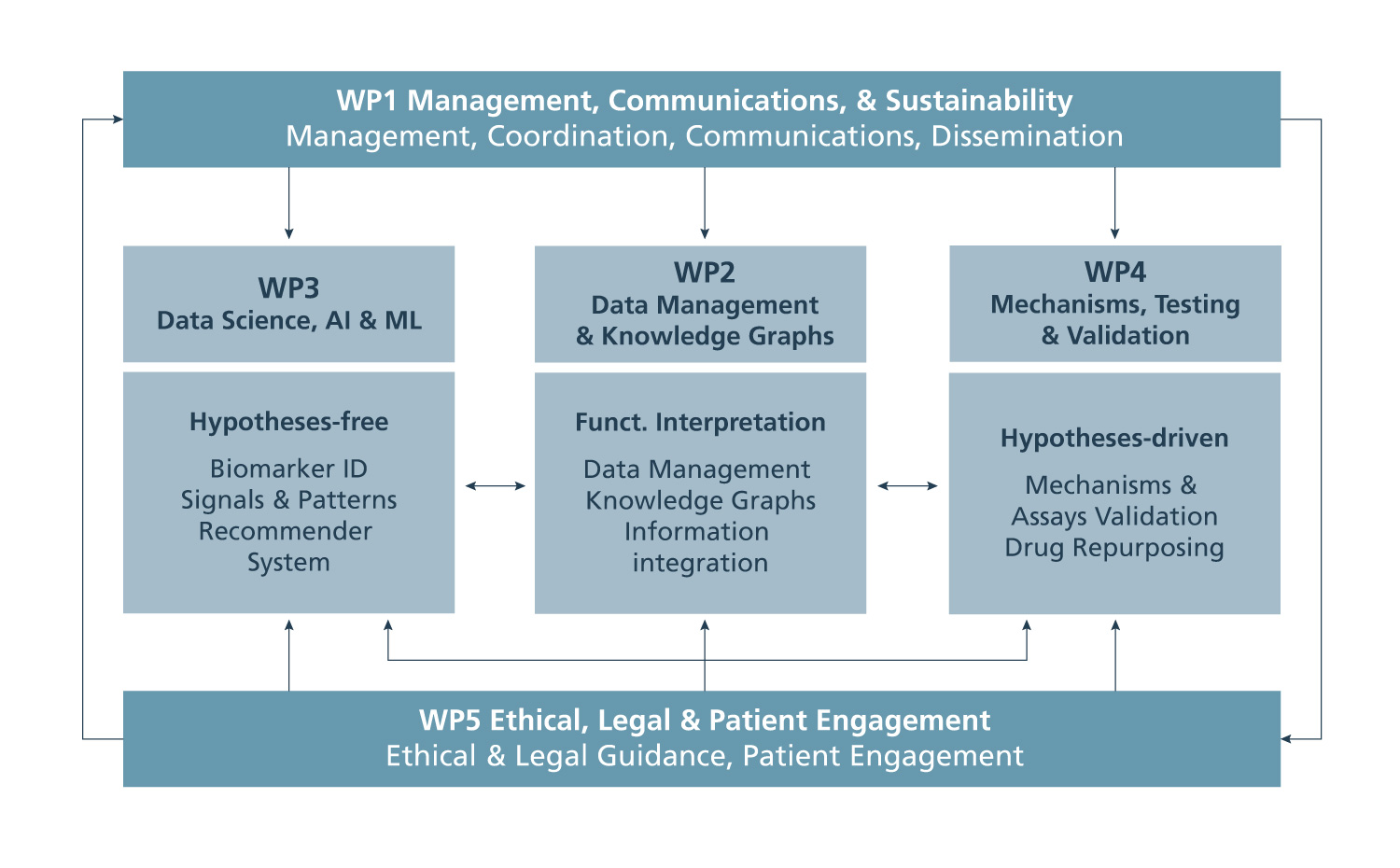Overview


WP1 is about all management, coordination, and communication aspects of the project. By setting up a controlled environment for shared research activities and outcomes as well as by running efficient monitoring, optimal work is fostered during the lifetime of the project.
WP2 takes care of all data and all knowledge management. Systematic data collection, data annotation and data harmonization will be performed and data interoperability will be ensured. All work on knowledge graphs and disease maps will be organized under the agis of WP2.
WP3 follows a data-driven workflow. The first aim of WP3 is to create biomarker based AL/AL models which allow for early identification of subjects at risk of a later conversion to an NDD or diagnosis of associated psychological symptoms (e.g. depression). These models will be integrated into a web-based app, which allows identifying vulnerable patient subgroups. The second aim is to shed light on the molecular mechanisms that link COVID-19 with NDDs. Following experimental validation this will allow the identification of biomarkers and candidate drug targets, hence supporting future research on SARS-CoV-2 - initiated / modulated neurodegeneration.
In WP4, all work is organized in a hypothesis-driven, knowledge-based workstream. A set of pre-defined comorbidity mechanism hypotheses will be tested and validated in biological assays and „crosstalk“ to AI/ML output from WP3 will be used underpin shared mechanism between COVID-19 and NDD.
In WP5 all ethical and legal research work is organized. work in WP5 will result in direct guidance and internal and external consulting on ethical and legal aspects of the work done in WP2, WP3 and WP4. Key aspects are for example the review of ethical and legal implications of the work performed in the project as well as the legislation and regulatory aspects of digital health apps.